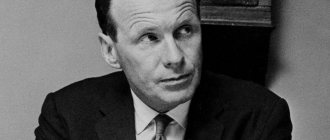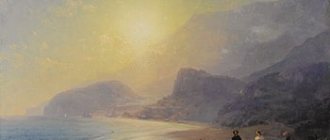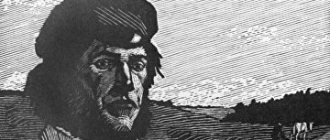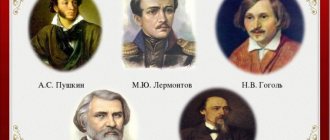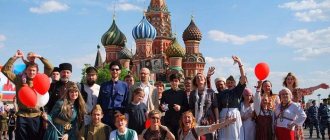John Reed. "Ten Days That Shook the World"
John Reed. 1910s Library of Congress
Author
American journalist John Reed (1887–1920) was one of those authors for whom the profession of “frantic reporter” was invented. He wrote about textile strikes in the United States - and ended up in jail along with the strikers. He went to the Mexican revolutionary Pancho Villa and told him, a former bandit, about socialism. A graduate of the prestigious Harvard University, Reed connected his fate with the socialist movement and its press. He was a supporter of the Industrial Workers of the World and one of the founders of the Communist Party USA.
Circumstances of writing
Reed returned to Russia, where he had already visited the fronts in 1915, in the fall of 1917 - and immediately found himself at the center of revolutionary events. The reporter spoke with industrialists, generals and ministers of the Provisional Government, with Bolshevik leaders, with Russian anarchists returning from New York and with ordinary soldiers. Reed knew very little Russian and was forced to use the services of a translator or rely on interlocutors who knew European languages. Moreover, the book, published in 1919, is actually accurate in its descriptions. Reed wrote it already in New York, armed not only with a notepad, but also with piles of newspapers, leaflets and advertisements, some of which he cites as appendices.
Content
First edition of the book. 1919 © Boni & Liveright / Lorne Bair Rare Books
The omnipresent Reed managed to visit the Winter Palace during the last hours of the Provisional Government there - and return to the Congress of Soviets in Smolny, where the overthrow of the previous government was announced. On the streets of Petrograd he dodged bullets, and near Tsarskoye Selo he was almost shot by revolutionary soldiers. He writes about all this calmly, in a business-like manner. Stalin's name appears in the text only a couple of times - in some lists. More noticeable is the figure of Lenin, who wrote the preface to the American edition (“I wholeheartedly recommend this work to the workers of all countries”). But Lenin hid underground or preferred office work to traveling to hot spots, so most often, among the leaders of Bolshevism, the fiery orator Trotsky flashes on the pages. This explains the fact that after the next Russian-language edition of the book in 1929, it was not republished until the 1950s. Reed's text was rehabilitated only after the 20th Congress of the CPSU.
Peculiarities
Reed, he said, “tried to view events with the eye of a conscientious chronicler interested in recording the truth.” He does not hide his sympathies for the Bolsheviks and their allies, but he does not heroize them - and does not demonize their opponents. He is too honest a reporter to become just a party agitator. Even considering the victory of the Bolsheviks to be natural, he does not hush up the violence that accompanied this victory. For example, Reed mentions that some of the women's death battalion who defended the Winter Palace, having surrendered, were raped by soldiers who supported the Soviets. However, the journalist also discusses greatly exaggerated reports about this in the “bourgeois” press.
Quote
“We went into town. At the exit of the station stood two soldiers with rifles and fixed bayonets. They were surrounded by up to a hundred merchants, officials and students. This whole crowd attacked them with shouts and abuse. The soldiers felt awkward, like unjustly punished children. The attack was led by a tall young man in a student uniform, with a very arrogant expression on his face. “I think it’s clear to you,” he said defiantly, “that by taking up arms against your brothers, you become an instrument in the hands of robbers and traitors.” “No, brother,” the soldier answered seriously, “you don’t understand.” After all, there are two classes in the world: the proletariat and the bourgeoisie. So, what? We...” “I know this stupid chatter! - the student interrupted him rudely. - Dark men like you have heard enough of slogans, but who says it and what it means - you don’t know. You repeat like a parrot!..” The crowd laughed... “I’m a Marxist myself!” I'm telling you that what you are fighting for is not socialism. This is just anarchy, and it only benefits the Germans.” “Well, yes, I understand,” answered the soldier. Sweat appeared on his forehead. “You are obviously a scientist, but I am a simple person.” But I just think...” “You really think,” the student interrupted contemptuously, “that Lenin is a true friend of the proletariat?” “Yes, I think,” answered the soldier. It was very difficult for him. “Okay, buddy!” Did you know that Lenin was sent from Germany in a sealed carriage? Do you know that Lenin receives money from the Germans?” “Well, I don’t know that,” the soldier answered stubbornly. “But it seems to me that Lenin is saying the very thing that I would like to hear.” And all the common people say so. After all, there are two classes: the bourgeoisie and the proletariat...” <...> „...I am fighting the Bolsheviks because they are destroying Russia and our free revolution. What do you say now?” The soldier scratched the back of his head. “I can’t say anything!” — his face was distorted by mental stress. “In my opinion, the matter is clear, but I’m an uneducated person!.. It seems like this: there are two classes - the proletariat and the bourgeoisie...” “Again, you with this stupid formula!” - shouted the student. “...only two classes,” the soldier continued stubbornly. “And whoever is not for one class is, therefore, for another...”
Vasily Shulgin. "Days"
1 / 2
Vasily Shulgin (left) and one of the leaders of the Association of Russian Monarchists Pavel Krupensky. 1917 © RIA Novosti
2 / 2
Vasily Shulgin in the film “Before the Judgment of History.” 1965 © RIA Novosti
Author
Vasily Vitalievich Shulgin (1878–1976) was one of the most prominent figures in the nationalist movement of the Russian Empire. The son of an editor, the stepson of the next editor and then the editor of the far-right newspaper Kievlyanin himself, in the last years of tsarism Shulgin moved away from traditional monarchist organizations. In 1915, the “Progressive Group of Nationalists” created in the Duma with his participation entered into a bloc with the liberals. After the revolution, Shulgin participated in the White movement. In 1944, SMERSH SMERSH (“Death to spies!”) was a military counterintelligence agency created in the USSR in 1943 and existed independently in the army, navy and within the NKVD. According to various sources, during the Second World War, SMERSH arrested from several hundred thousand to several million people. arrested him in Yugoslavia. After spending 12 years in prison, Shulgin reconciled with Soviet power and participated in propaganda work.
Circumstances of writing
Finding himself in exile in 1920, Shulgin took up his memoirs. The book “Days,” in which he talks about the February Revolution, was first published in the emigrant magazine “Russian Thought” in 1922. The first separate edition was published in 1925 in Belgrade. Shulgin, who secretly made his way into the USSR that same year, was able to buy a Soviet reprint of his book.
Content
Cover of the 1925 edition State Public Historical Library
Description of the history of February Shulgin begins from afar - from the moment of publication of the October Manifesto of 1905, which he blames for the destruction of traditional relations between the monarchy and its subjects. The Constitution “began with a pogrom against the Jews and ended with the defeat of the dynasty.” The author then defended the editorial board of “Kievlyanin” from the revolutionary crowd and, at the head of a platoon of soldiers, suppressed pogroms, which, as he believed, were caused by the Jewish attack on tsarism. When Shulgin's anti-government Duma speech in November 1916 was banned by censorship, this marked for him a further breakdown in the relationship between the people and the autocrat. Shulgin, in search of “some way out,” participates in the organization of the Provisional Committee of the State Duma and comes to the conclusion that Nicholas II must abdicate. He nervously and misanthropically describes the crowds passing through the Tauride Palace, arrests, political meetings, and the complex relations of Duma members with the leaders of the Petrograd Soviet. But he went down in history as a monarchist who accepted the abdication of the last Russian emperor and then the abdication of his brother, Grand Duke Mikhail.
Peculiarities
Shulgin's many years of experience as a journalist and parliamentary speaker helped him describe the revolutionary chaos. However, he admits that his memories are sometimes confused into a “nightmarish mess.” He completely distorts some facts: he claims that Empress Alexandra Feodorovna was in favor of “concessions” to the opposition, and presents Grand Duke Mikhail Alexandrovich as “the personification of fragility,” although he made active efforts to save the monarchy. A modern reader may be shocked by Shulgin's zoological anti-Semitism, although for his time it was quite moderate - it is more disgust than active hatred. The publicist considered Jewish pogroms harmful and opposed the fabrication of the “Beilis Affair” “The Beilis Affair”
- the trial of the Jew Menachem Mendel Beilis, who was accused of the ritual murder of 12-year-old Andrei Yushchinsky. The trial, which was accompanied by an active anti-Semitic campaign on the one hand and protests by the progressive public in Russia and around the world on the other, took place in Kyiv in the fall of 1913. Beilis was acquitted...
Quote
“I don’t know how it happened... I can’t remember. I already remember that moment when the black-gray thicket, pressing in the doorway, flooded the Duma in a continuous rushing stream... Soldiers, workers, students, intellectuals, just people... They filled the confused Tauride Palace with living, viscous human jam, sealed up hall after hall, room room after room, room after room... From the very first moment of this flood, disgust filled my soul, and since then it has not left me throughout the entire duration of the “great” Russian revolution. The endless, inexhaustible stream of the human water supply threw more and more new faces into the Duma... But no matter how many of them there were, they all had the same face: vile-animal-stupid or vile-diabolically-evil... God, how disgusting it was!.. So disgusting , that, gritting my teeth, I felt in myself only melancholy, powerless and therefore even more evil rage... Machine guns! Machine guns - that's what I wanted. For I felt that only the language of machine guns was accessible to the street crowd and that only he, lead, could drive back into his den the terrible beast that had broken free... Alas - this beast was... His Majesty the Russian people... What we were so afraid of, what whatever they wanted to avoid was already a fact. The revolution has begun."
Vladimir Nabokov. "The Provisional Government and the Bolshevik Revolution"
1 / 2
Vladimir Nabokov. 1914 Wikimedia Commons
2 / 2
State Duma deputies Vladimir Nabokov (left) and Alexey Aladin. Photo by Karl Bulla. 1906 Wikimedia Commons
Author
One of the most important figures of the constitutional democrat party, Vladimir Dmitrievich Nabokov (1869–1922), was at the very center of revolutionary events. A prominent lawyer, the son of the Minister of Justice in the tsarist government, he co-authored the act of refusing to accept the throne of Grand Duke Mikhail Alexandrovich, and then was the manager of the affairs of the Provisional Government of the first composition and worked in the government Legal Council. The Legal Council is a body created in March 1917 and which existed until the October Revolution, whose tasks included the legal assessment of the resolutions, decrees and orders of the Provisional Government, as well as the preparation of the Constituent Assembly.. He died in Berlin during an attempt by monarchists on the life of the cadet leader Pavel Miliukov.
Circumstances of writing
After the start of Bolshevik repressions, Nabokov ended up in Crimea. Relying only on a file of the cadet newspaper Rech as a source, he described his experiences from the February riots in Petrograd to his brief arrest in November 1917 in Smolny. Nabokov’s memoirs about the Provisional Government open the first issue of the almanac “Archive of the Russian Revolution,” which cadet Joseph Gessen began publishing in 1921. In 1924, the book was republished in the USSR.
Content
Title page of the first volume of the almanac. 1921 Wikimedia Commons
Nabokov the memoirist focuses on what he directly observed. Being a military man, he seems to have been one of the last among the cadet leaders to reach the Tauride Palace, where the Provisional Government was being formed. He became almost the last government representative in the Winter Palace, which he left just minutes before the blockade established by Soviet forces.
In his brief notes, Nabokov focuses not on his own role in history, but on those with whom he worked together. He vividly describes his government colleagues, assessing them as politicians, orators, and most importantly, as leaders of the revolution. Minister of Justice Alexander Kerensky is painfully vain and lacks confidence; Chief Prosecutor of the Synod Vladimir Lvov is naive and incredibly frivolous; Minister of Agriculture Andrei Shingarev is capable and hardworking, but lacks abilities on a national scale. Nabokov sees the main political and social contradictions of 1917 clearly, realizing their fatal insolubility - and the fatal unsuitability of almost all leaders to solve the problems facing the country.
Peculiarities
An experienced publicist and the father of a famous writer, Nabokov writes very vividly. The memoirist’s memory is remarkable: more than a year after the events, in 1918, he accurately reproduced the routes he took among the revolutionary crowds of Petrograd in February, July or October.
Quote
“...I still cannot join the stream of blasphemy and anathematism that now accompanies any mention of the name of Kerensky. I will not deny that he played a truly fatal role in the history of the Russian revolution, but this happened because a mediocre, unconscious rebellious element accidentally raised an insufficiently strong personality to an inappropriate height. The worst that can be said about Kerensky concerns the assessment of the basic properties of his mind and character. But one can repeat about him the words that he recently - with such an amazing lack of moral sense and elementary tact - uttered to Kornilov. “In his own way,” he loved his homeland - he really burned with revolutionary pathos - and there were times when a genuine feeling broke through from under the actor’s mask. Let us remember his speech about the rebellious slaves, his cry of despair when he sensed the abyss into which unbridled demagogy was dragging Russia. Of course, here there was no feeling of either genuine strength or clear dictates of reason, but there was some kind of sincere, albeit fruitless, impulse. Kerensky was a prisoner of his mediocre friends, of his past. He organically could not act directly and boldly, and, with all his conceit and pride, he did not have that calm and unshakable confidence that is characteristic of truly strong people. There was absolutely nothing “heroic” in Carlyle’s sense.”
Wise quotes about revolution
“Sometimes, having deceived the people, they carry out a coup with their consent, and then, after some time, they seize power by force, against the will of the people.”
Aristotle (384-322 BC)
“There is no business that is more difficult to organize, more dangerous to conduct, and more doubtful of success than replacing old orders with new ones.”
Niccolò Machiavelli (1469-1527)
“Twenty huge volumes will never make a revolution; it will be made into little brochures for twenty sous.”
Voltaire (1694-1778)
“Revolutions are like a game of chess, where pawns can destroy, save the king, or take his place.”
“In revolutionary storms, people barely fit to row an oar take control of the rudder.”
“The revolution sometimes gives overlords such people whom we would not want to have as lackeys.”
Pierre Boist (1765-1824)
“Not all revolutions are preceded by signs and warnings. There is also political apoplexy.”
Karl Berne (1786-1837)
“Revolutions most often occur not because one side has become more enlightened, but because the other has done too many stupid things.”
Antoine de Rivarol (1753-1801)
“God forbid we see a Russian rebellion, senseless and merciless! Those who are plotting impossible revolutions among us are either young and do not know our people, or they are hard-hearted people, for whom someone else’s head is half a piece, and their own neck is a penny.”
Alexander Sergeevich Pushkin (1799-1837)
“Revolutions are conceived by romantics, carried out by fanatics, and their results are used by scum”
“The strength of revolutionaries does not lie in the ideas of their leaders, but in the promise to satisfy at least a small proportion of moderate demands that were not promptly implemented by the existing government.”
Otto von Bismarck (1815-1898)
“Revolutions are the locomotives of history”
Karl Marx (1818-1883)
“When people are placed in conditions that are appropriate only to animals, they have no choice but to either rebel or actually turn into animals.”
Friedrich Engels (1820-1895)
Maksim Gorky. "Untimely Thoughts"
Maksim Gorky. Circa 1906 Library of Congress
Author
The classic of proletarian literature Maxim Gorky was not just a fiction writer and cultural activist. Even before the revolution, he took an active part in the Social Democratic movement. Before World War I, he edited the Bolshevik newspaper Pravda for a short time; during the war, his magazine Chronicle was one of the few legal “defeatist” publications. Defeatism (defeatism) is the desire for the defeat of one’s own country in the war. Some socialists in Russia, most notably Vladimir Lenin, considered Russia's defeat in the "reactionary" First World War to be a good thing, since it would further the cause of the revolution.
Circumstances of writing
After the February Revolution, Gorky offered his articles to the newly legalized Bolshevik newspapers, but they rejected his texts due to ideological differences. The writer and a number of other publicists close to the Menshevik-internationalists founded the newspaper “New Life” in the spring of 1917, which was published for a little over a year. Gorky’s journalistic texts regularly appeared in it, mainly in his author’s column “Untimely Thoughts.” In 1918, Gorky collected them into two books - “Revolution and Culture” and “Untimely Thoughts”. The writer prepared a third, more voluminous compilation of his articles, but it remained in the archive until the end of the 1980s, until Gorky’s anti-Bolshevik journalism found itself in demand again during the years of perestroika, when it was published.
Content
“Untimely thoughts. Notes on revolution and culture". 1918 © Culture and Freedom
In his “Novozhizny” articles, Gorky chronicled the manifestations of “grave Russian stupidity” that outraged him. He wrote about provocateurs, lynchings, humiliations, and the epidemic of violence that gripped the country. The revolutionary people, at least in the form of a cultureless, brutal crowd, for Gorky are the embodiment of “zoological anarchism”, which the intelligentsia must resist. He sees education, the dissemination of books and scientific knowledge as a way to save the country and the revolution. In these articles, Gorky’s admiration for the achievements of civilization that conquers nature, such as canals or tunnels, is generally noticeable - this admiration will subsequently be felt in Gorky’s praise of the White Sea-Baltic Canal.
But during the period of “Untimely Thoughts,” Gorky expressed the position of independent socialists. He wrote “about the wild rudeness, about the cruelty of the Bolsheviks, rising to sadism, about their lack of culture, about their ignorance of the psychology of the Russian people, about the fact that they are carrying out disgusting experiments on the people and destroying the working class.” Gorky had every reason to write that he “to the best of his ability” fought against the Bolsheviks. However, he attacked not only them, but also, for example, the policies of the Cadet Party.
Peculiarities
Gorky's articles appeared in the book in almost the same form in which they were published in the newspaper. The texts, however, are redistributed subject-wise - texts about culture, about October, and so on are put together. A significant part of the political struggle in the revolutionary era took place, of course, in newspapers. In addition to his own observations and conversations, Gorky also draws on polemics with other authors, for example, employees of Bolshevik publications Ilya Ionov or Ivan Knizhnik-Vetrov. The cruel spirit of the times is also evident in letters from readers, quite a few of whom threatened the publicist with death due to political differences.
Quote
“Lenin is a “leader” and a Russian master, not alien to some of the spiritual properties of this class that has gone into oblivion, and therefore he considers himself entitled to carry out a cruel experiment with the Russian people, doomed in advance to failure. The people, exhausted and devastated by the war, have already paid for this experience with thousands of lives and will be forced to pay with tens of thousands, which will decapitate them for a long time. This inevitable tragedy does not bother Lenin, a slave of dogma, and his minions - his slaves. Life, in all its complexity, is not known to Lenin, he does not know the masses of the people, he has not lived with them, but he - from books - learned how to raise this mass on its hind legs, what is the easiest way to enrage its instincts. The working class is for the Lenins what ore is for the metal worker. Is it possible - under all given conditions - to cast a socialist state from this ore? Apparently - impossible; however - why not try? What does Lenin risk if the experiment fails? He works like a chemist in a laboratory, with the difference that the chemist uses dead matter, but his work gives a result valuable for life, while Lenin works on living material and leads to the death of the revolution. Conscious workers who follow Lenin must understand that a ruthless experiment is being carried out on the Russian working class, which will destroy the best forces of the workers and will stop the normal development of the Russian revolution for a long time.”
Fyodor Tyutchev about the revolution
“The revolution, first of all, is the enemy of Christianity”
“The revolution is not only an enemy of blood and flesh. She is more than a Principle. This is Spirit, Reason, and in order to defeat it, one should acquire the ability to cope with it.”
“Revolution is a disease that devours the West, and not a soul that gives it movement and development.”
“The anti-Christian spirit is the soul of the Revolution, its essential, distinctive property”
“For a long time now, there have been only two real forces in Europe: the Revolution and Russia. These two forces today stand against each other, and tomorrow, perhaps, they will fight each other. No agreements or treaties are possible between them. The life of one of them means the death of the other. On the outcome of the struggle between them, the greatest struggle the world has ever seen, the entire political and religious future of mankind depends for centuries.”
“Revolution, if we consider its most essential and simple beginning, is the natural fruit, the last word, the highest expression of what for three centuries has been called the civilization of the West.”
“Modern thought can successfully fight not with the Revolution, but with one or another of its consequences, with socialism, communism and even atheism. However, she would have to deny herself in order to destroy the fundamental revolutionary Principle."
Fyodor Ivanovich Tyutchev (1803-1873)
“Revolution and revolutionary upheavals, of course, are disasters for society, and therefore it can resort to them only to achieve sufficiently significant, lasting and lasting well-being to compensate for a temporary disturbance of peace.”
Paul Holbach (1723-1789)
"Revolution means turning the wheel"
Igor Stravinsky (1882-1971)
"The revolution devours its children"
Pierre Vergniaud (1753-1793)
“The madness of the revolution was the desire to introduce virtue on earth. When they want to make people kind, wise, free, temperate, generous, they inevitably come to the desire to kill them all.”
Anatole France (1844-1924)
“In every revolutionary lies a gendarme”
Gustave Flaubert (1821-1880)
“I have always been convinced that responsibility for revolutions falls not on the people, but on the government. Revolutions are impossible if governments are always fair, always vigilant, if they prevent discontent with modern reforms.”
“In order to carry out a revolution, as you know, two things are needed: firstly, to have a good head, and secondly, to receive a large inheritance”
Johann Goethe (1749-1832)
“Every revolution is not so much a construction site of the future as an auction of the past”
Jaimito von Doderer (1896-1966)
“Every revolution was at first a thought in the brain of one person”
Ralph Emerson (1803-1882)
“Every revolution that does not also take place in morals and ideas fails.”
Francois Chateaubriand (1768-1848)
“Stupid things done by experienced people; absurdities proclaimed by smart people; crimes committed by private people—that’s what revolution is.”
Louis de Bonald (1754-1840)
“Every successful coup is called a revolution, and every unsuccessful coup is called a rebellion.”
Joseph Priestley (1733-1804)
“When all other rights are trampled upon, the right to revolt becomes undeniable”
Thomas Paine (1737-1809)
“When intellectuals are hungry, they take up not growing potatoes, but organizing a revolution.”
Wilhelm Schwebel
Anton Denikin. "Essays on Russian Troubles"
1 / 2
Anton Denikin. 1914 Wikimedia Commons
2 / 2
Anton Denikin. Paris, 1930s © DIOMEDIA
Author
Anton Ivanovich Denikin (1872–1947) - the son of a serf peasant who became an officer, was born and raised in Poland. During the Russo-Japanese War he carried out bayonet attacks. He received the rank of lieutenant general for the capture of the city of Lutsk in 1915. Denikin began publishing his fictional and journalistic texts back in the 1890s, criticizing the bureaucracy of the tsarist army, rudeness and arbitrariness towards the lower ranks. He accepted the February Revolution, but actively resisted measures to democratize the army, which he considered to undermine discipline, and became one of the leaders of the Kornilov and then White movements. After the defeat of the Armed Forces of Southern Russia, Denikin resigned and went into exile. During the Second World War, he sharply criticized the collaboration of Russian emigrants with the Nazis; spent the last two years of his life in the USA.
Circumstances of writing
Denikin began work on “Essays on Russian Troubles” in Belgium in 1920, a few months after he left the post of acting supreme ruler of Russia, and then the country. In total, Denikin’s historical and biographical work includes five volumes, but the first two are devoted to the revolution: “The Collapse of Power and the Army. February - September 1917" and "The Struggle of General Kornilov. August 1917 - April 1918." The first part appeared in 1921, the last volume, written in Hungary, was published in 1926. In the USSR, individual excerpts from the Essays were published in the 1920s, but the full edition was published only during the years of perestroika.
Content
Volume one “The Collapse of Power and the Army.” 1921 State Public Historical Library
The work of one of the leaders of the White movement is not quite similar to the usual “general’s memoirs.” Not only because of Denikin’s obvious literary talent, not only because of the heartfelt emotional intonation characteristic of the texts of Russian intellectuals. In the first volume and in the first half of the second, he practically does not talk about the military operations that he led. Instead, Denikin presents a broad picture of the life of Russian society, primarily the army and officers, captured by the revolutionary whirlwind, based on a wide range of different sources.
The author managed to take some of the documents used in the work with him abroad. Some of his comrades, for example Leonid Novosiltsev, wrote memoirs specifically at Denikin’s request. He refers to both newspapers and the works of other participants in the events - both supporters and opponents, sometimes subjecting evidence to a kind of “cross-examination.” But as a direct observer, Denikin was at the center of many important events. The general could, for example, confidently call the morale of the troops the main reason for the failure of the summer offensive of 1917, since “in all areas of the offensive [Russian troops] had superiority of forces and technical means over the enemy, and in particular an unprecedented amount of heavy artillery.”
Peculiarities
One of the thoughts that Denikin strongly emphasizes in his description of the events of 1917 is that the officer movement was not monarchical, reactionary, or counter-revolutionary in nature and goals. The officers and generals as a whole accepted the February Revolution and understood it as liberation from tsarism, which prevented a successful fight against the external enemy. The Kornilov movement “was caused by high patriotism and a clear, burning consciousness of the bottomless abyss into which the Russian people were madly rolling.” Denikin sees the main reason for this situation as the alliance of the German General Staff and the “invisible, but clearly felt psychological and real threads” of revolutionary democracy associated with it. However, his assertion about the direct connection of the “defeatists” with the German command is as doubtful as the thesis about the massive influx of former police officers and gendarmes into the Bolshevik Party.
The military dictatorship was supposed to change the balance of power and save the liberal democratic gains of February. But Denikin dwells little on the role of the monarchists in the Kornilov movement, presents the confrontation between Headquarters and the Provisional Government as the fault of the latter and his supporters on the left, and also leaves behind the scenes those mass extrajudicial executions, at the cost of which only the temporary success of the Kornilov action could have been achieved . Such bias is characteristic of all memoirists, even the best of them, but Denikin has the courage to admit that the reasons for the defeat of the coup were “Kerensky’s energetic struggle to maintain power and the Soviets’ struggle for self-preservation, the complete failure of the technical preparation of Kornilov’s speech and the inert resistance of the masses.”
Quote
“The old governor’s house on the high, steep bank of the Dnieper, which for six months had witnessed so many historical dramas, remained deathly silent. As the situation worsened, the walls became strangely empty, and an eerie, oppressive silence settled in them, as if there was a dead person in the house. Rare reports and a lot of leisure time. Disgraced Supreme This refers to Lavr Kornilov, who became the supreme commander of the Russian army on July 19, 1917, spiritually shocked, with bloodshot eyes and longing in his heart, he remained alone for hours, experiencing his great drama, the drama of Russia, within himself. In rare moments of communication with loved ones, having heard a timidly thrown phrase expressing hope for a quick approach to the capital of Krymov’s troops, he abruptly interrupted: “Come on, don’t.” Everything was falling apart little by little. The last hopes for the revival of the army and the salvation of the country were disappearing.”
Fyodor Raskolnikov. "Kronstadt and St. Petersburg in 1917"
Fyodor Raskolnikov. 1920 © TASS
Author
Fyodor Fedorovich Raskolnikov (real name Ilyin, 1892–1939) made a fantastic career thanks to his active participation in the Bolshevik Party, which he joined as a student. Midshipman Raskolnikov was elected comrade-chairman of the Kronstadt Council. He worked actively in the party press and in the Bolshevik movement in the Baltic Fleet. During the Civil War, Raskolnikov fought famously, although with varying degrees of success. In December 1918, the British captured two destroyers under his command in the Baltic, and the naval commander had to spend several months in a London prison. At one time, Raskolnikov served as Trotsky’s deputy naval commissar and commanded the Baltic Fleet for several months. In the 1920s and 30s, he held responsible diplomatic posts, and in 1938 he became a defector, having learned from the newspapers on the way to Moscow about his dismissal from the post of plenipotentiary representative in Bulgaria. A few days after writing an accusatory open letter to Stalin, Raskolnikov found himself in a French psychiatric clinic, unable to cope with the news of the conclusion of the Molotov-Ribbentrop Pact. The Molotov-Ribbentrop Pact, or Non-Aggression Pact between Germany and the Soviet Union, is an agreement signed on August 23, 1939 by the heads of departments for foreign affairs of Germany and the Soviet Union..
Circumstances of writing
Raskolnikov the memoirist made his debut in 1925, publishing after returning from Afghanistan a book of memoirs about his activities in Kronstadt and Petrograd in 1917. A censored version of the book was republished in 1964, after Raskolnikov's posthumous rehabilitation; completely - during the years of perestroika.
Content
"Kronstadt and St. Petersburg in 1917." 1990 © Publishing House of Political Literature
Raskolnikov’s memoirs are a fairly simple, ingenuous narrative. The author generously shares the joy of victory in the revolutionary struggle, which he describes in chronological order. He met the February Revolution as a midshipman, and the party sent him to the “citadel of the revolution” Kronstadt to edit the newspaper “Voice of Truth”; he became one of the leading Bolshevik organizers and agitators in the Baltic. During the July Days, Raskolnikov “actually turned into an illegal commander of the troops,” which is why he sat in Kresty until mid-October. The book ends with a description of Raskolnikov's adventures in the detachments of Baltic sailors who defended Petrograd from the forces of Kerensky and Krasnov and then captured a white armored train. During the Civil War, the army of the White Movement actively used armored and armed trains, which helped conduct military operations along the railways.. Raskolnikov's point of view is quite consistent with the orthodox party ideological position, which he set out in articles and at rallies in 1917.
Peculiarities
The censor's pen, or at least the editor's, did not seem to pass through Raskolnikov's text. The text contains stylistically flawed phrases, for example: “the arrival of Vladimir Ilyich generally marked a sharp cutoff in the tactics of the Bolsheviks.” In the mid-1920s, Raskolnikov worked as an editor for magazines and publishing houses, even became the head of the Main Art Department, and editors were not afraid of him. Ideological clichés also come easily to him. Actually, Raskolnikov was one of those who invented them and put them into use.
Quote
“Comrade Lenin appeared on the balcony, greeted by a long, incessant thunder of applause. The ovation had not yet completely died down when Ilyich had already begun to speak. His speech was very short. Vladimir Ilyich first of all apologized for the fact that due to illness he was forced to limit himself to only a few words, and conveyed greetings to the Kronstadters on behalf of the St. Petersburg workers, and regarding the political situation, he expressed confidence that, despite temporary zigzags, our slogan “All power to the Soviets!” should win and will ultimately win, for the sake of which colossal stamina, endurance and extreme vigilance are required from us. No specific calls, which later tried to be attributed to comrade. Lenin Pereverzev's prosecutor's office Pavel Pereverzev (1871–1944) - Russian lawyer, immediately after the February Revolution, first became the prosecutor of the Petrograd Judicial Chamber, and from May 1917 - the Minister of Justice of the Provisional Government. After the anti-government protests of the Bolsheviks in July, he initiated the publication of documents about their connections with the German government, which ultimately led to the persecution of the RSDLP (b) and the flight of Vladimir Lenin from Petrograd, his speech did not contain. Ilyich finished to the accompaniment of an even warmer and more friendly ovation. After these greetings, the Kronstadters, as befits organized military units and detachments of workers, lined up again and, to the sounds of several military bands that continuously played revolutionary tunes, entered the Trinity Bridge in perfect order. Here we have already become the subject of attention from flirtatious, smartly dressed officers, fat, healthy and well-fed bourgeoisie in new bowlers, ladies and young ladies in hats. They drove by in cabs, passed by, holding hands, but genuine horror was imprinted on all the faces looking at us with wide open eyes.”
Famous Quotes About Revolution
“Revolutions have never before lightened the burden of tyranny, but only shifted it onto other shoulders.”
Bernard Shaw (1856-1950)
“One revolution is like one cocktail: you immediately start preparing the next one.”
Will Rogers (1879-1935)
"Optimism is the religion of revolutions"
Jacques Banville (1879-1936)
“Revolutionaries need great upheavals, I need a great Russia”
Pyotr Stolypin (1862-1911)
"Revolutionaries are dead men on vacation"
Eugen Levine (1883-1919)
